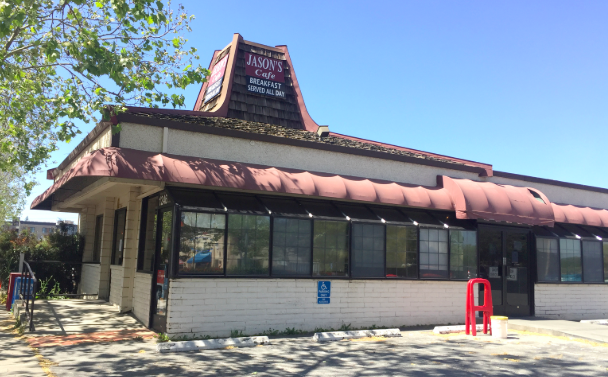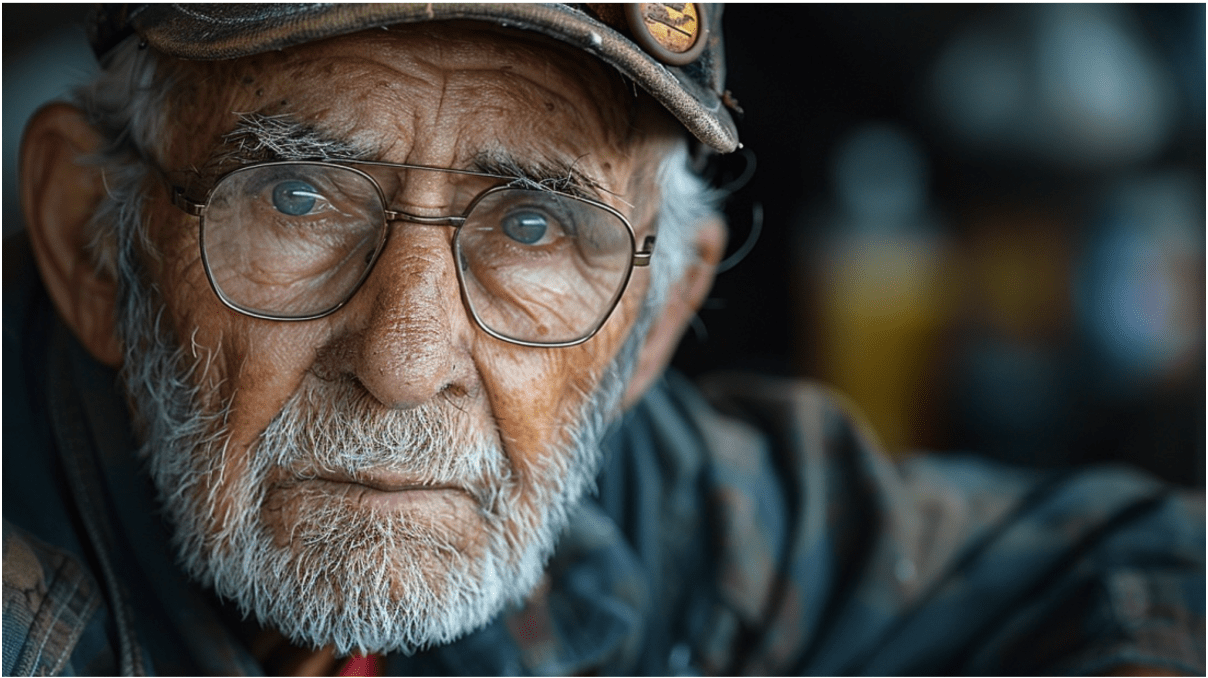US
American Coffee Shop Closes after 3rd ADA Lawsuit

On April 30th, Jason’s Cafe closed after three different ADA lawsuits were filed against the restaurant. The cafe had been doing business in Menlo Park, California for 11 years.
These lawsuits were all filed for different reasons: the width of bathroom stalls was too narrow, the front door was too heavy, and the lines for the handicap spaces in the parking lot were faded beyond recognition.
Restaurant owner Jason Kwan says the building was old–built 40 or 50 years ago. This was before the ADA was in place. So, the original building plans did not comply with today’s expectations.
To meet the requirements of the ADA, Kwan would need to replace the front door or install a handicap door switch with a button, repaint the lines in the parking lot, and do a total renovation of the bathroom. These repairs would certainly add up.
But, if the changes are not made, Kwan will continue to be faced with even more costly lawsuits.
It seems that these are typically the types of buildings that are targeted for lawsuits. People familiar with the American Disabilities Act (ADA) know that, like Jason’s Cafe, these older buildings have likely not been renovated or updated to meet the standards required by the 1990s act.
Two of the three people who filed lawsuits against Jason’s Cafe have sued other restaurants for noncompliance. Each one had already sued a handful of restaurants and hotels in the years previous.
These lawsuits had a devastating effect on Kwan’s bottom line. Not only would he have to pay for the changes made to the restaurant, but he also needs to pay for his own legal fees and the legal fees of the plaintiff, along with any other damages incurred by the noncompliance.
After the third lawsuit, Kwan was forced to close his doors. He was understandably disappointed, saying, “That’s my baby right there.”
These lawsuits are not uncommon today, and small business like Jason’s Cafe need to be aware of the requirements expected of their stores and websites through the ADA.
In the first half of 2018, about 5,000 ADA lawsuits were filed. That number is up 30% from the previous year. Of those lawsuits, 1,053 of them were filed for noncompliance on business websites. This number increased a staggering 90% from the previous year.
A good example of noncompliance on a website comes from a lawsuit filed on Avanti Hotel.
This small, 10-room boutique was sued because its website was not accessible for non-seeing, non-hearing users. In order to have an ADA compliant website, it needs to be coded properly to allow for a screen reader to translate the information. Links and images need tags, videos need captions, etc.
Without proper coding, some people with disabilities will not have access to all of the information on the businesses’ sites.
Though there is no need for physical renovation in this case, these lawsuits can still be incredibly expensive. California sees more ADA lawsuits than any other state in the U.S. The state government has set a minimum $4,000 fee for non compliant businesses. This number does not include any legal fees for the defendant or the plaintiff. This minimum is only enforced in California at this time.
For Avanti Hotel, they were advised to take a settlement between $8,000 and $13,000 after all fees and costs for damages were covered.
These damages can be much higher depending on the sort of business/association being sued. Healthcare organizations with noncompliant sites have some of the biggest risks associated with these lawsuits.
A healthcare website that is not ADA complaint is a real danger to the health and wellness of disabled persons. Damages in these cases can easily add up to a six-figure fine. Organizations could lose business, government funding, their good reputation, and would risk the wellbeing of millions of disabled people.
ADA lawsuits are no small matter. They have the power to close down restaurants or businesses if owners are not careful. Many small businesses cannot afford the kinds of fees associated with these lawsuits. So, it is essential that business owners learn how to protect themselves and how to better serve their disabled patrons before they are faced with a lawsuit.
US
Creating Safe Havens: Inside Genesis USA’s Vision for Inclusive Housing

GenesisUSA, a nonprofit based in Arlington, Texas, works to improve the lives of disabled veterans and children who have lost their parents. Led by Charles Ford, the organization goes beyond providing financial aid. It focuses on long-term solutions, like building wheelchair-accessible homes, to support independence and dignity for those in need. With rising housing costs and growing inequality, GenesisUSA’s mission addresses a critical gap.
Ford and his team create supportive environments that help promote self-reliance in underserved communities. As a smaller, community-based organization, it addresses challenges that can be difficult for larger organizations to manage. Its work shows how local initiatives can make a noticeable difference.
A Growing Crisis: The Need for Accessible Housing
The demand for affordable and accessible housing continues to grow. A 2023 report from the National Low Income Housing Coalition estimated that more than 11 million U.S. households need homes with accessibility features. This challenge is more pronounced for disabled veterans, with nearly four million living in homes that do not meet their physical needs.
“Our veterans have sacrificed a lot for this country, but many still face housing that doesn’t suit their needs,” Ford says. “Beyond merely providing them shelter, we’re creating a space where they can live comfortably.”
GenesisUSA is responding by building homes designed for accessibility. These houses include ramps, wider doorways, and modified kitchens and bathrooms to allow veterans to live more independently. The organization also plans to create supportive environments for children who have lost their parents, many of whom also face mobility challenges.
Ford’s Community-Driven Leadership at GenesisUSA
Ford’s years of experience in construction and his dedication to charitable work have shaped his leadership at GenesisUSA. He stays closely involved, often meeting veterans and families to learn about their needs firsthand. “For me, it’s about building personal connections,” Ford says. “Large charities sometimes miss the individual stories.”
The community focus defines Ford’s leadership. Although some wonder if a smaller nonprofit can make a meaningful impact, Ford is confident. “We don’t have celebrity endorsements or huge budgets, but we have real relationships with the people we help,” he says. His dedication to grassroots efforts sets GenesisUSA apart from larger, more structured organizations.
GenesisUSA has already helped over 100 people and aims to expand its impact with affordable, accessible housing solutions. One notable feature is the inclusion of a wheelchair-accessible swimming pool, which has received positive feedback. Ford says, “We’re creating spaces where people can enjoy life fully, just like everyone else,” which reflects the organization’s mission to support independence and inclusion.
Building More Than Homes: A Reflection of Hope
Ford looks back on GenesisUSA’s progress with a clear sense of purpose. “We’re not simply building homes, we’re offering hope and building opportunities for independence,” he says. “We’re here to support veterans who face mobility challenges and children who have lost their parents, offering them a chance at a more self-reliant life.”
As the organization’s reach expands, so does its ability to impact lives across the country. Its work embodies Ford’s dedication to ensuring that no one is overlooked. Ford envisions scaling their efforts while maintaining the personalized approach that defines their model.
“We’re still in the early stages,” he notes. “As we grow, we’ll continue to prioritize individual needs. Our success hinges on the improved quality of life for each person we help.”
As the demand for accessible, supportive housing rises, organizations like GenesisUSA play an important role in filling gaps left by larger institutions and government programs. Through its focus on tailored support and community-driven solutions, GenesisUSA is building a model for how smaller nonprofits can significantly impact and address pressing social needs.
-

 Tech4 years ago
Tech4 years agoEffuel Reviews (2021) – Effuel ECO OBD2 Saves Fuel, and Reduce Gas Cost? Effuel Customer Reviews
-

 Tech6 years ago
Tech6 years agoBosch Power Tools India Launches ‘Cordless Matlab Bosch’ Campaign to Demonstrate the Power of Cordless
-

 Lifestyle6 years ago
Lifestyle6 years agoCatholic Cases App brings Church’s Moral Teachings to Androids and iPhones
-

 Lifestyle4 years ago
Lifestyle4 years agoEast Side Hype x Billionaire Boys Club. Hottest New Streetwear Releases in Utah.
-

 Tech6 years ago
Tech6 years agoCloud Buyers & Investors to Profit in the Future
-

 Lifestyle5 years ago
Lifestyle5 years agoThe Midas of Cosmetic Dermatology: Dr. Simon Ourian
-

 Health6 years ago
Health6 years agoCBDistillery Review: Is it a scam?
-

 Entertainment6 years ago
Entertainment6 years agoAvengers Endgame now Available on 123Movies for Download & Streaming for Free
